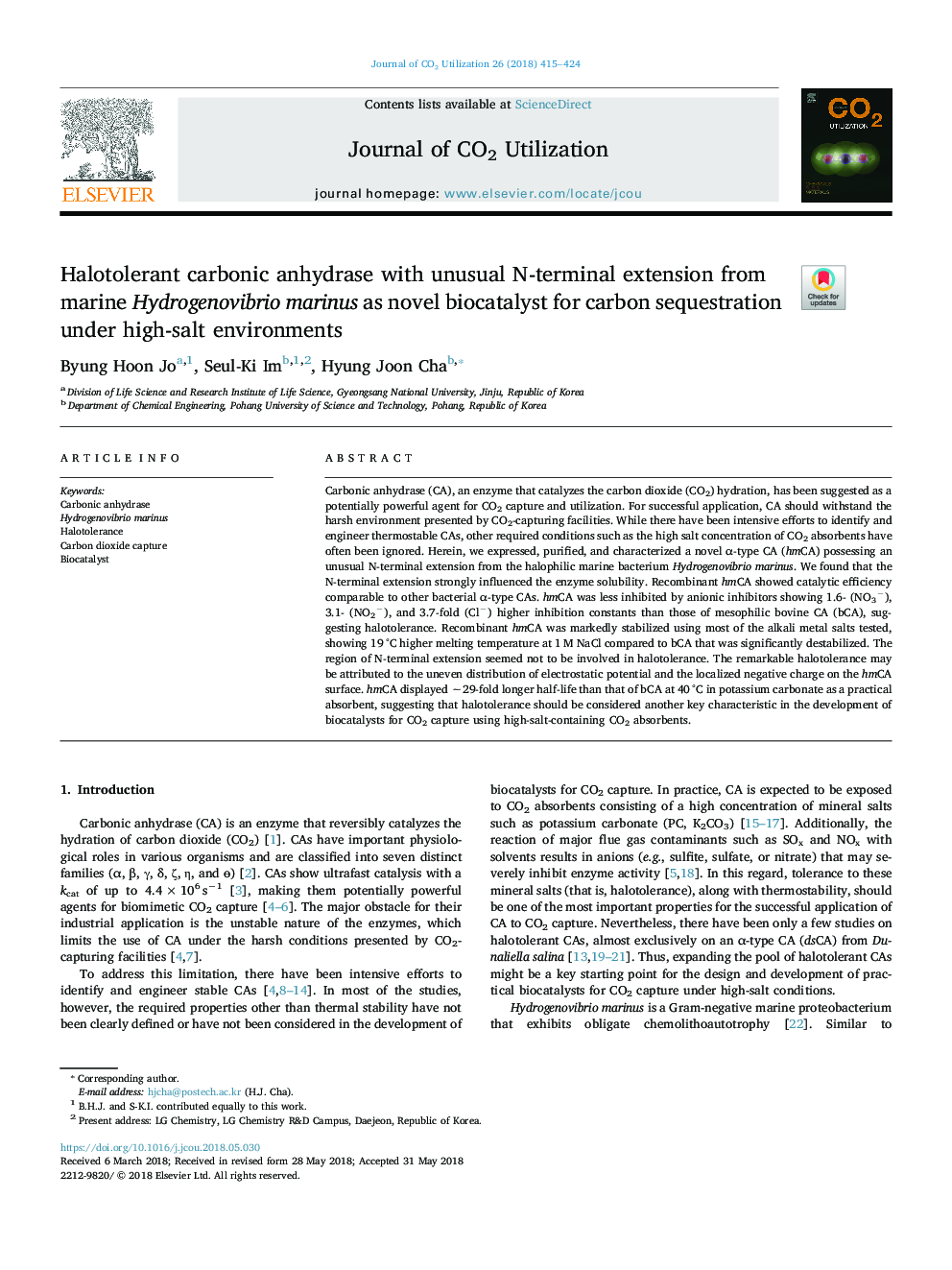| Article ID | Journal | Published Year | Pages | File Type |
|---|---|---|---|---|
| 6528511 | Journal of CO2 Utilization | 2018 | 10 Pages |
Abstract
Carbonic anhydrase (CA), an enzyme that catalyzes the carbon dioxide (CO2) hydration, has been suggested as a potentially powerful agent for CO2 capture and utilization. For successful application, CA should withstand the harsh environment presented by CO2-capturing facilities. While there have been intensive efforts to identify and engineer thermostable CAs, other required conditions such as the high salt concentration of CO2 absorbents have often been ignored. Herein, we expressed, purified, and characterized a novel α-type CA (hmCA) possessing an unusual N-terminal extension from the halophilic marine bacterium Hydrogenovibrio marinus. We found that the N-terminal extension strongly influenced the enzyme solubility. Recombinant hmCA showed catalytic efficiency comparable to other bacterial α-type CAs. hmCA was less inhibited by anionic inhibitors showing 1.6- (NO3â), 3.1- (NO2â), and 3.7-fold (Clâ) higher inhibition constants than those of mesophilic bovine CA (bCA), suggesting halotolerance. Recombinant hmCA was markedly stabilized using most of the alkali metal salts tested, showing 19â¯Â°C higher melting temperature at 1â¯M NaCl compared to bCA that was significantly destabilized. The region of N-terminal extension seemed not to be involved in halotolerance. The remarkable halotolerance may be attributed to the uneven distribution of electrostatic potential and the localized negative charge on the hmCA surface. hmCA displayed â¼29-fold longer half-life than that of bCA at 40â¯Â°C in potassium carbonate as a practical absorbent, suggesting that halotolerance should be considered another key characteristic in the development of biocatalysts for CO2 capture using high-salt-containing CO2 absorbents.
Related Topics
Physical Sciences and Engineering
Chemical Engineering
Catalysis
Authors
Byung Hoon Jo, Seul-Ki Im, Hyung Joon Cha,
